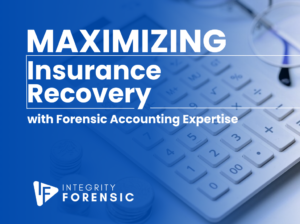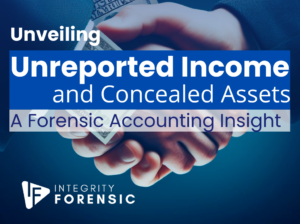Fraudulent activities can have devastating consequences for businesses, leading to substantial financial losses and irreparable damage to their reputation. It is essential for organizations to be aware of the various types of fraud that can occur and take proactive measures to prevent them. In this blog post, we will delve into two common types of fraud – embezzlement and bribery – and provide valuable prevention tips to help safeguard your organization.
- Embezzlement – Protecting Your Assets and Finances
Embezzlement occurs when an individual entrusted with funds or assets intentionally misappropriates them for personal gain. This deceitful act often involves manipulating financial records to conceal the theft. To prevent embezzlement within your organization, consider the following tips:
Segregate accounting duties: Establish a system where different employees handle various aspects of financial transactions. This ensures that no single individual has complete control over the entire process, reducing the risk of fraudulent activity going undetected.
Conduct thorough background checks: Prior to hiring employees, especially those responsible for financial matters, perform comprehensive background checks to verify their credentials and integrity. This step can help identify any potential red flags before they become problematic.
Engage a forensic accounting firm: Partner with a reputable forensic accounting firm that specializes in detecting financial irregularities. Regular audits conducted by these experts can help uncover any signs of embezzlement and ensure the integrity of your organization’s financial operations.
Maintain vigilant monitoring: Implement robust systems for monitoring financial transactions and regularly review financial records. This proactive approach allows you to detect any unauthorized activities or discrepancies promptly, preventing further losses.
- Bribery – Upholding Ethical Standards
Bribery involves the exchange of something valuable to gain an improper advantage or influence. It can tarnish a company’s reputation and compromise its ethical standing. To safeguard your organization against bribery, consider these prevention tips:
Seek forensic accounting expertise: Enlist the assistance of a forensic accounting firm to thoroughly review transactional data and contracts. Their expertise in identifying suspicious patterns can help uncover any potential instances of bribery within your organization.
Establish anti-bribery policies: Develop and enforce clear and comprehensive anti-bribery policies that outline the organization’s stance on unethical practices. These policies should also include disciplinary measures for violations.
Conduct due diligence on third parties: Before entering into any business relationships, perform due diligence on suppliers, partners, and contractors. Thoroughly vetting their reputation and integrity can help minimize the risk of involvement with entities engaged in bribery.
Foster an ethical culture: Provide regular training sessions to educate employees on the importance of ethical behavior and the potential risks associated with bribery. By promoting an environment of integrity, you can deter individuals from engaging in fraudulent activities.
Fraudulent activities, such as embezzlement and bribery, pose significant risks to organizations of all sizes. By understanding these common types of fraud and implementing robust prevention measures, you can safeguard your organization’s assets, finances, and reputation. Remember, engaging a forensic accounting firm can provide invaluable support in detecting and preventing fraudulent activities. By fostering an ethical culture and remaining vigilant, you can ensure the long-term success and sustainability of your organization in the face of potential fraud.
At Integrity Forensic, we have a team of experienced forensic accountants to assist you. Call now for a free consultation: 855-673-9999 or send us a message at questions@integrityforensic.com.





